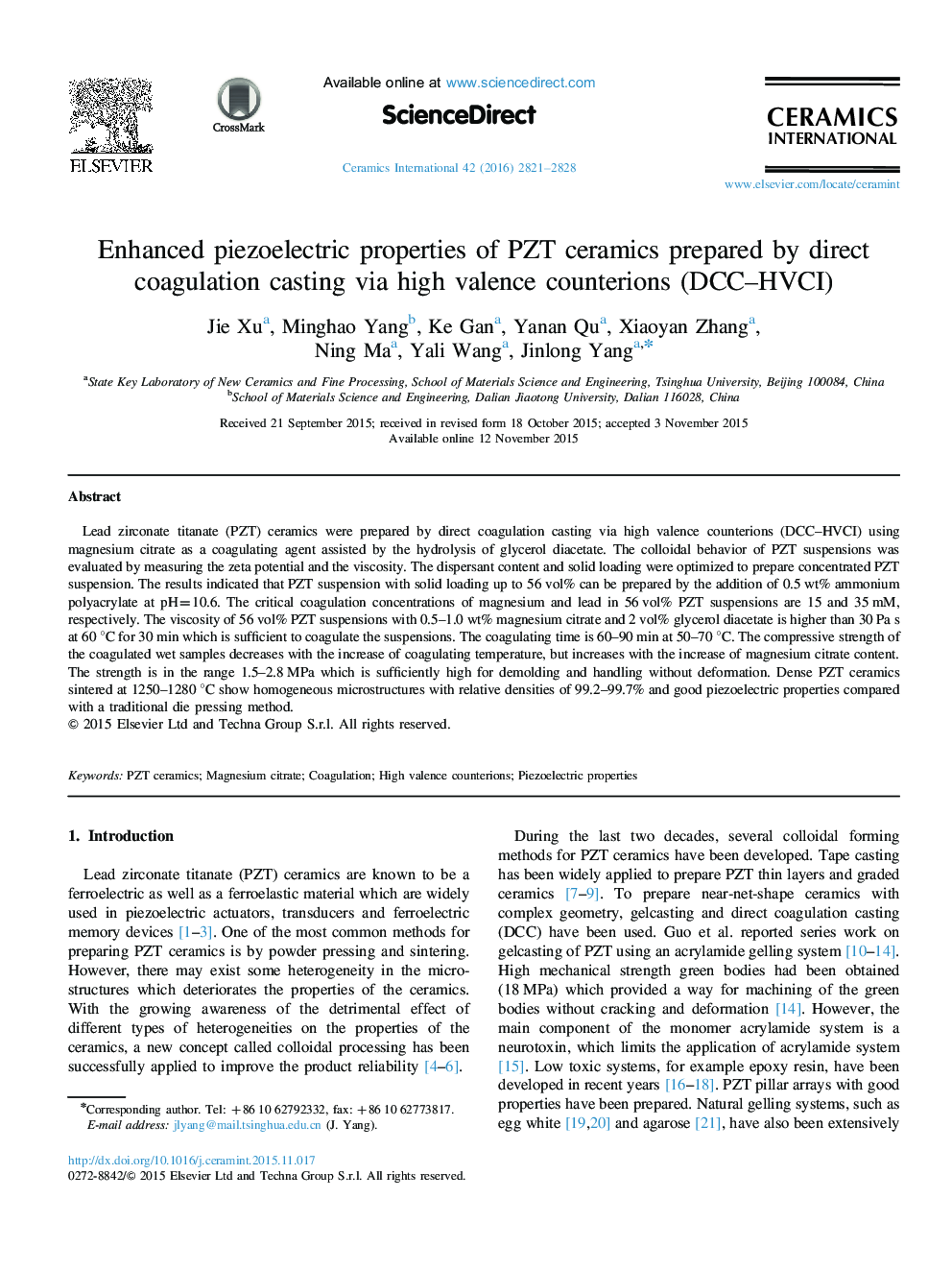| Article ID | Journal | Published Year | Pages | File Type |
|---|---|---|---|---|
| 1458980 | Ceramics International | 2016 | 8 Pages |
Lead zirconate titanate (PZT) ceramics were prepared by direct coagulation casting via high valence counterions (DCC–HVCI) using magnesium citrate as a coagulating agent assisted by the hydrolysis of glycerol diacetate. The colloidal behavior of PZT suspensions was evaluated by measuring the zeta potential and the viscosity. The dispersant content and solid loading were optimized to prepare concentrated PZT suspension. The results indicated that PZT suspension with solid loading up to 56 vol% can be prepared by the addition of 0.5 wt% ammonium polyacrylate at pH=10.6. The critical coagulation concentrations of magnesium and lead in 56 vol% PZT suspensions are 15 and 35 mM, respectively. The viscosity of 56 vol% PZT suspensions with 0.5–1.0 wt% magnesium citrate and 2 vol% glycerol diacetate is higher than 30 Pa s at 60 °C for 30 min which is sufficient to coagulate the suspensions. The coagulating time is 60–90 min at 50–70 °C. The compressive strength of the coagulated wet samples decreases with the increase of coagulating temperature, but increases with the increase of magnesium citrate content. The strength is in the range 1.5–2.8 MPa which is sufficiently high for demolding and handling without deformation. Dense PZT ceramics sintered at 1250–1280 °C show homogeneous microstructures with relative densities of 99.2–99.7% and good piezoelectric properties compared with a traditional die pressing method.
